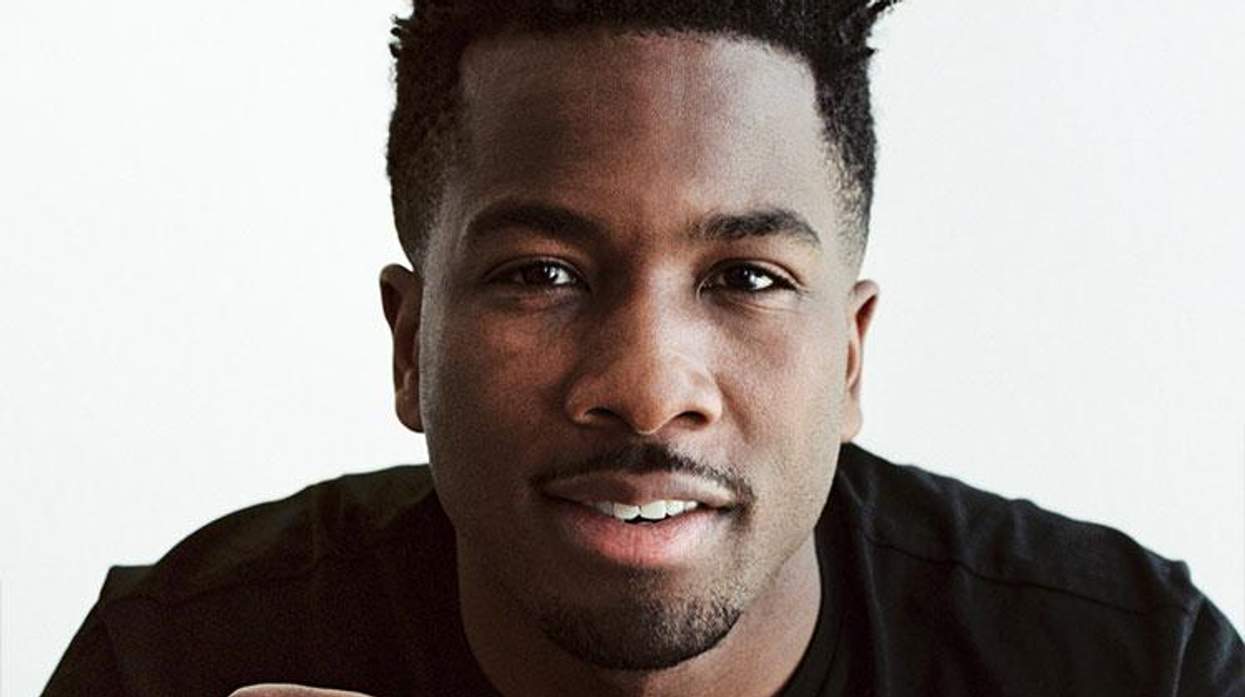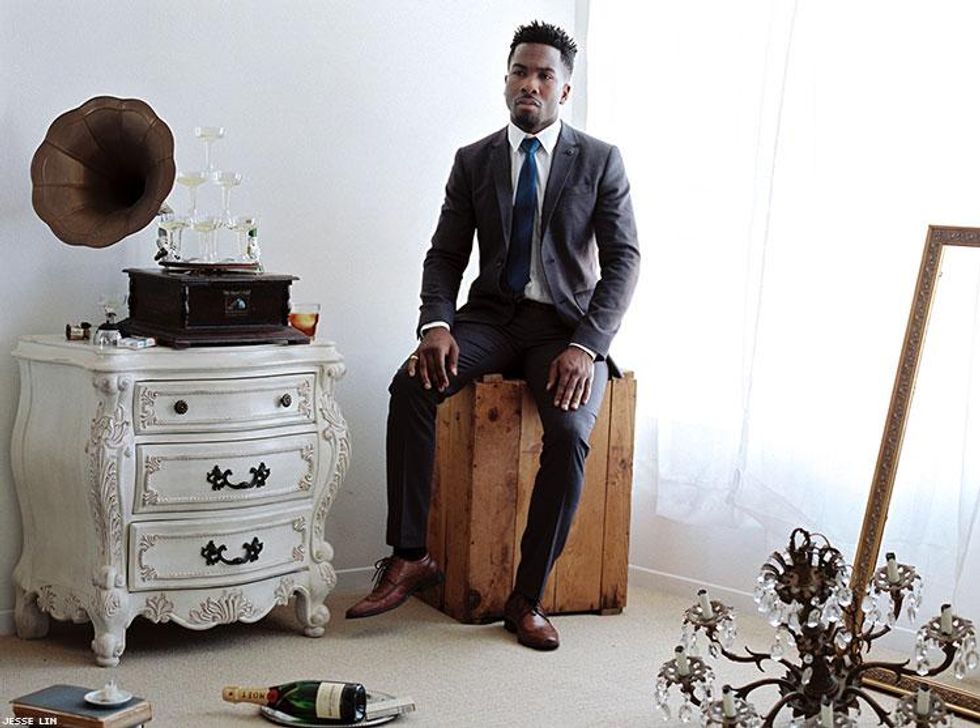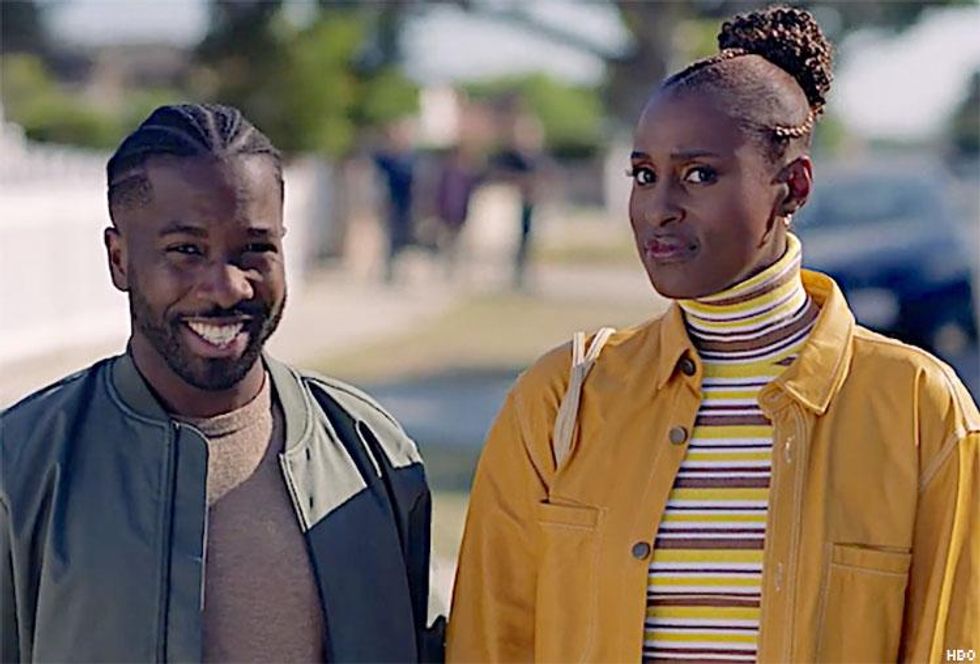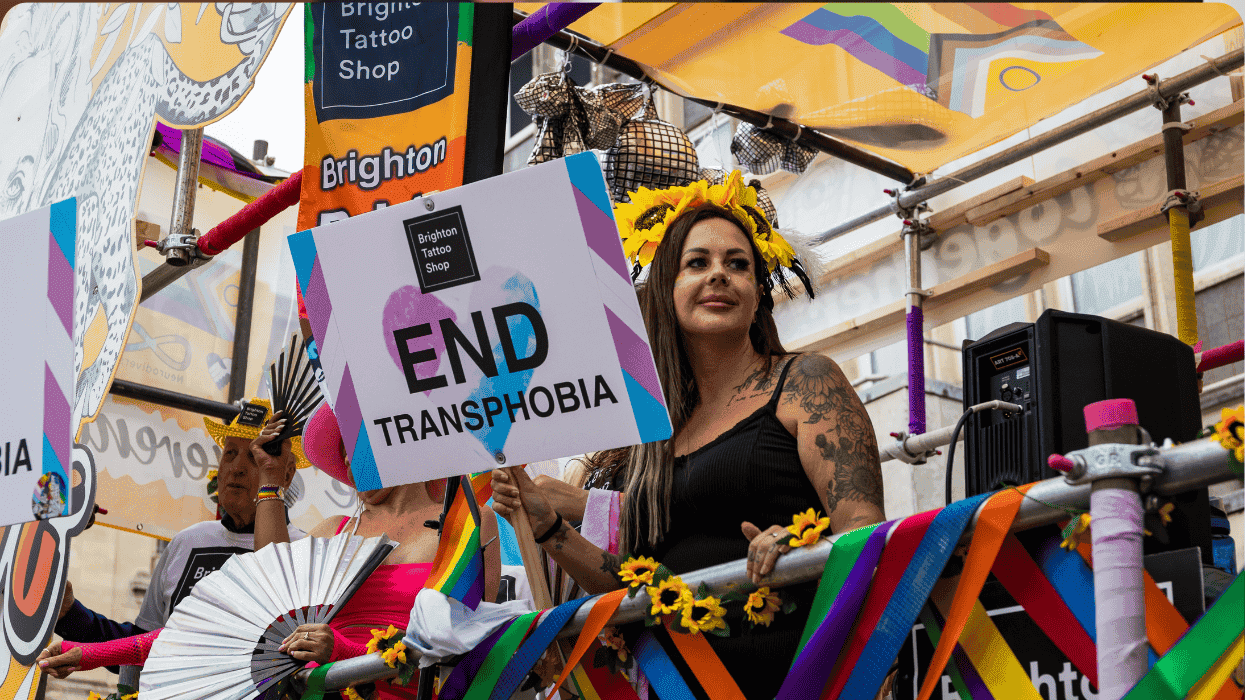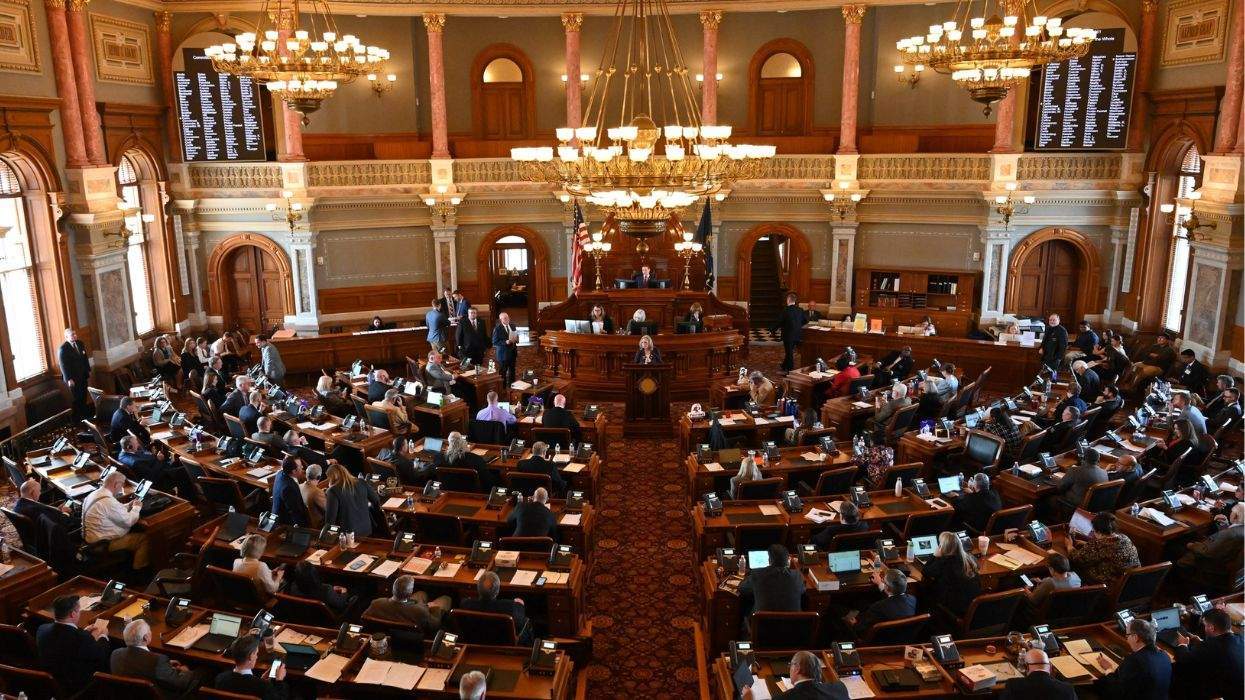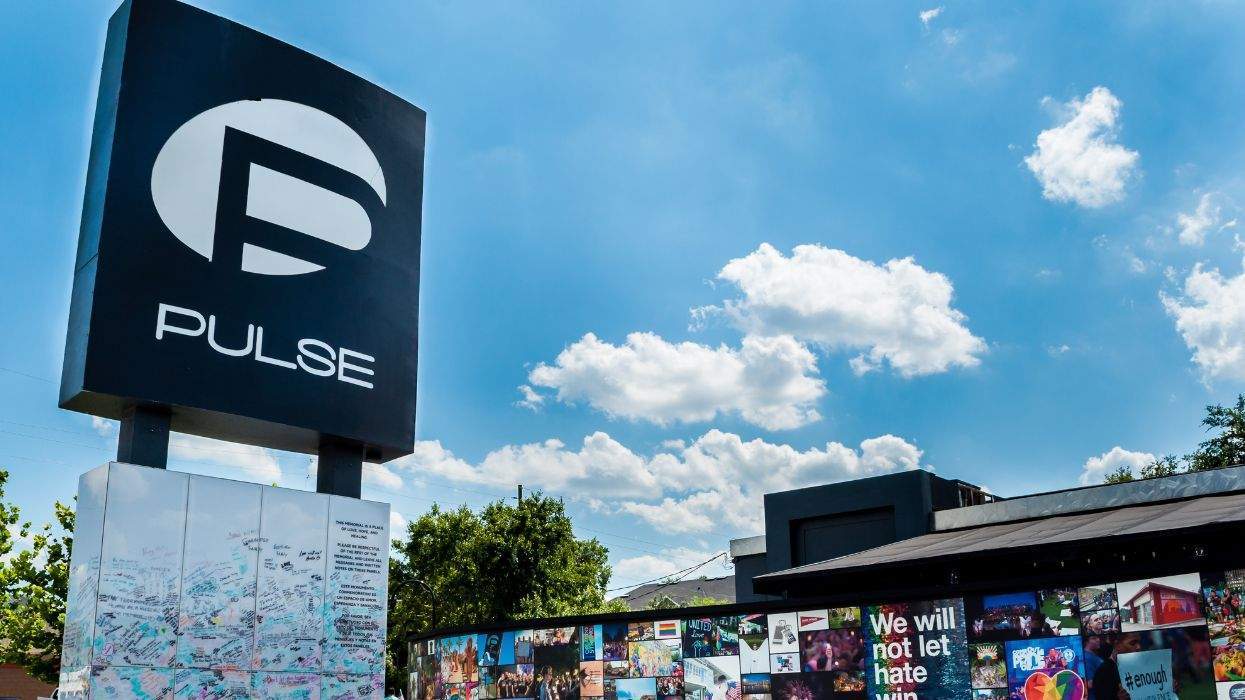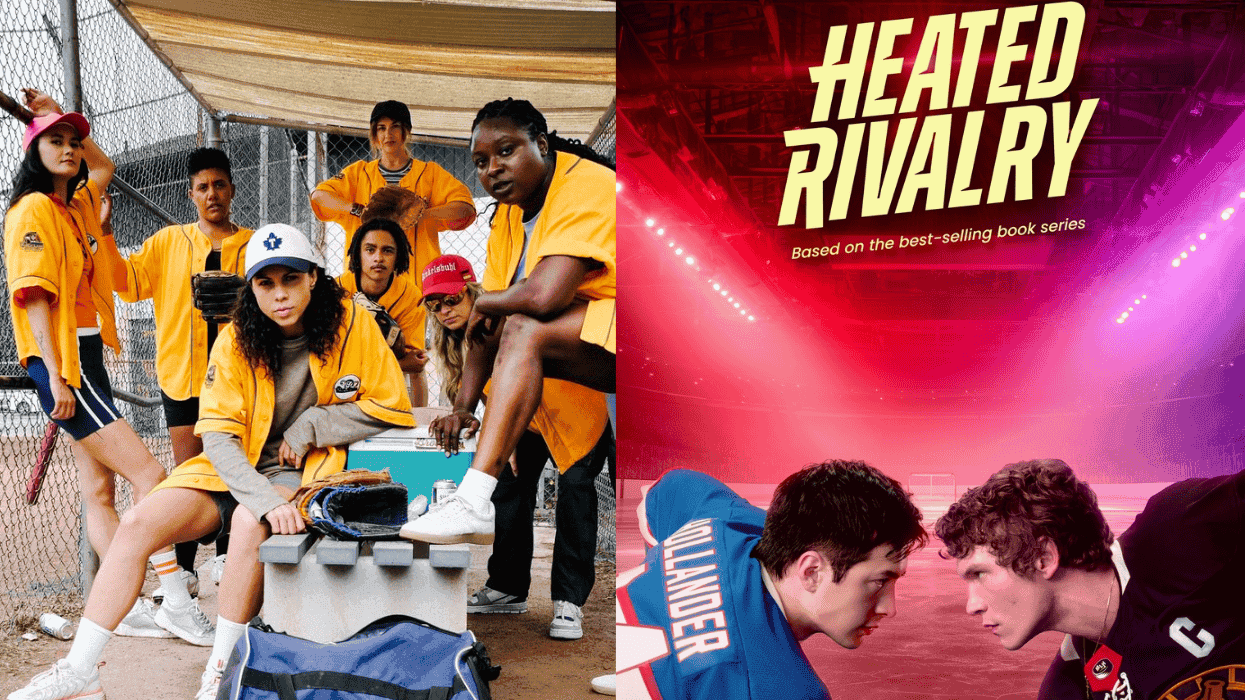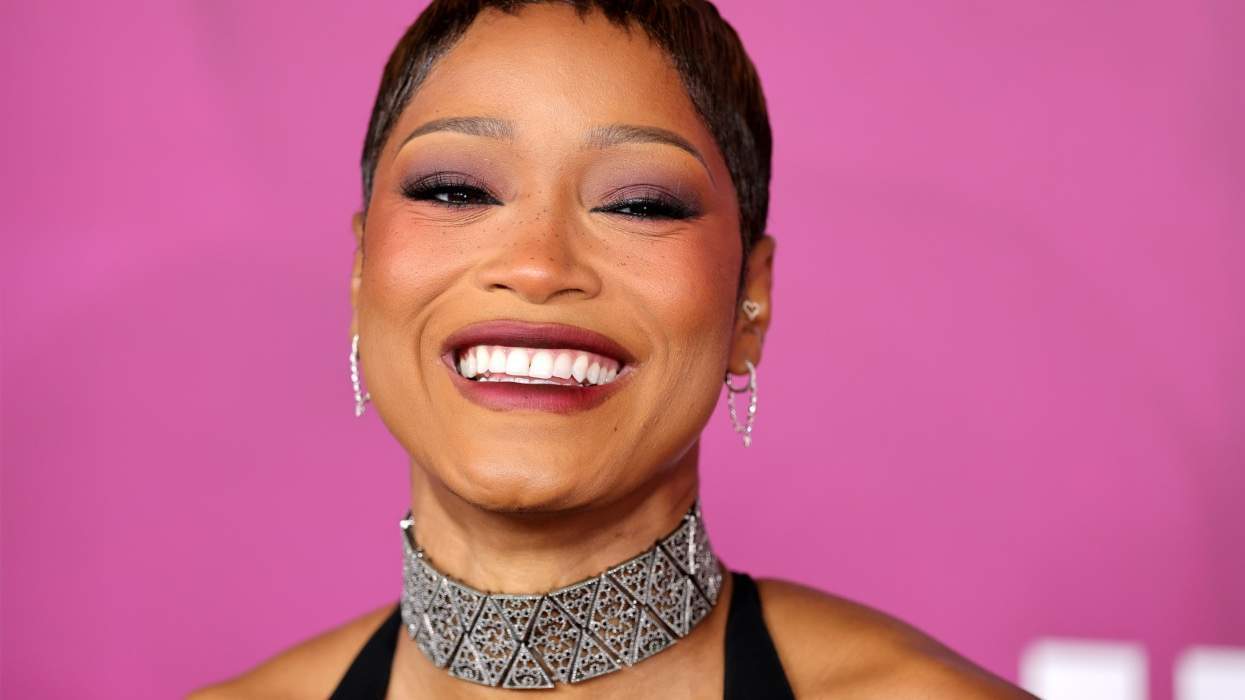In a scene from a recent episode of HBO's Insecure, "Lowkey Thankful," Issa Dee (Issa Rae) and her gay brother, Ahmal (Jean Elie), share a Thanksgiving meal at a Mexican restaurant after a medical emergency disrupts their traditional family plans.
This dinner becomes an intimate moment between the siblings, as Issa recounts how, at one past family gathering, their parents responded to Ahmal bringing his "roommate" Jordan to Thanksgiving with a "long-ass, pointed-ass prayer" stressing that marriage is between a man and a woman.
The moment is "heartbreaking," Elie said, because it revealed a betrayal and double standard from Ahmal's family. How they could look the other way about sin when it came to an aunt bringing a married man to the table, but not extend acceptance when it came to their gay son?
"I'm just done changing myself for people. I'm just gonna be me," Ahmal tells Issa.
Since first appearing on season 2 of Insecure, Ahmal has been known for comedic moments, particularly ones arising from his love-hate relationship with his sister. However, in that moment, Elie wanted to humanize his character for viewers. "I just wanted them to feel that Ahmal was a real person and where his feelings were coming from were very legit and how he feels," the 32-year-old actor expressed.
And when it came to Black gay representation in the media landscape, Elie, who is straight, wanted to make sure he got it right. "I don't want to misrepresent who Ahmal is as an individual," Elie stressed. So from the moment he was first cast on the HBO series, which centers on Dee and other Black millennials figuring out life and love in L.A., Elie has committed himself to research in preparing for the role.
To this end, Elie consulted with former roommates who were gay and listened to their experiences. He used these stories as "a rough outline" for Ahmal and his history. Then he read about historic Black gay figures like the March on Washington organizer Bayard Rustin and Giovanni's Room author James Baldwin.
Additionally, Elie looked to his own Black gay friends, who "move through the world as strong, confident Black men who just happen to be gay." He tried to "mirror" that in Ahmal. In particular, he cited his friend Mike and his boyfriend, a couple he admires. "I want my relationship with my girlfriend to marry their relationship because their relationship is so dope," he said.
From his queer friends, he learned about the difficulties in coming out, including the "veil or shield" they had to wear in certain circumstances for protection. Code-switching -- the modification of behavior in front of different groups -- was another lesson, which Eli employed in Ahmal's first episode in season 2 as he slapped hands with men and employed a higher, more playful vocal register with women.
Elie asked his circle a lot of questions -- and he even kept a journal with their responses. He asked them questions like "When you were growing up, how was the family dynamic? Who was the first person you came [out] to? How did you know? How do you approach telling someone else? How did you approach your first boyfriend? How do you keep people so close but so separated from you? How do you move through life like that? And when you decided fuck it, I'm just gonna be me, what was that like?"
Elie also learned about intercommunity conflicts, such as the "off-kilter" relationship of "the white gay man versus the Black gay man."
"There's some differences between the two, and how white gay men are approached and how Black gay men approached and how white gay men are accepted and how Black gay men are accepted," Elie said. There is still a road ahead in "fighting for changes to make that not be a big thing anymore," he added.
By doing this research and giving life to Ahmal, Elie has developed his own opinions on representation. While Hollywood has made some strides in diversity in recent years, it still has a long way to go in showing a greater quantity and spectrum of Black gay characters. The entertainment industry could start this endeavor, Elie said, "by showing different colors of a Black gay man. Not stereotyping them. Breaking the mold of what they thought of how they view or how they envisioned a Black gay man to be. There's no difference between myself and another Black man who happens to be gay."
"I'm funny, I'm sassy sometimes. I talk. I'm confident. Just like a lot of my gay friends that are in my circle. They're the same way, and I love them for that," he added.
Elie saw the positive impact that his character brings to the world firsthand after a longtime friend, who he never knew was gay, came out to him and thanked him for "playing me." Elie's "mind was blown." And it brought home the importance of what he was doing.
"It's a representation that matters and being able to tell their stories and speak for people like my friend who ... I didn't know throughout the four years of college was gay. That is what's so important to me in playing Ahmal. And that's why I feel that Ahmal brings to the table, [helping] those men who feel like they have to hide who they are."
Elie has also garnered many fans on social media, who love that Ahmal is outspoken, confident, and adept at "stealing a scene" with his appearances. They are also fascinated by the obscure origins of his feud with Kelli (Natasha Rothwell), one of Issa's friends. What is the root of that beef, by the way? "You're just gonna have to wait for that part. I can't spill the beans," Elie teased.
And then there are the critics, some of whom believe Elie should not have the authority to play a gay man because he is straight. This criticism is part of an ongoing debate over whether LGBTQ roles should be reserved for LGBTQ actors, given the long history of casting discrimination against them.
To these critics, Elie would say, "Neil Patrick Harris plays straight men all the time. And I don't see people really giving him shit for that. Also, you're acting, and I took a chance. And I made sure I did my research and did my homework before I even stepped into the shoes because I didn't want to come off as fake or a caricature."
Homophobia, even for a straight actor, also comes with the territory. Even within his friend circle, there are those who asked him why he would play a gay character on TV. "Yeah, he's also a man on TV," Elie would respond. "He's also a person who matters. He's also someone who's also representing another demographic of people. ... So what's the issue here?"
While Elie has been spared many homophobic trolls on social media, he has also had to deal with another facet of playing a gay character: people assuming he's gay and hitting on him.
"They're constantly sending wild DMs to me," Elie said. His response? "I usually don't say anything. I leave it alone. But what happens is a lot of times if I don't reply to them, they're like, 'Yo, I know you see my messages. Why don't you hit me back, what up?' I'm like 'Whoa, relax!' Or I get messages where people are sending me all kinds of body parts and I'm like, 'Bro, this is not cool. I don't even accept that from females, like why would I accept that for you?' I'm like, 'You guys need to just chill out.'"
Regardless, Elie said it's flattering to have admirers. "I feel loved," he said with a laugh.
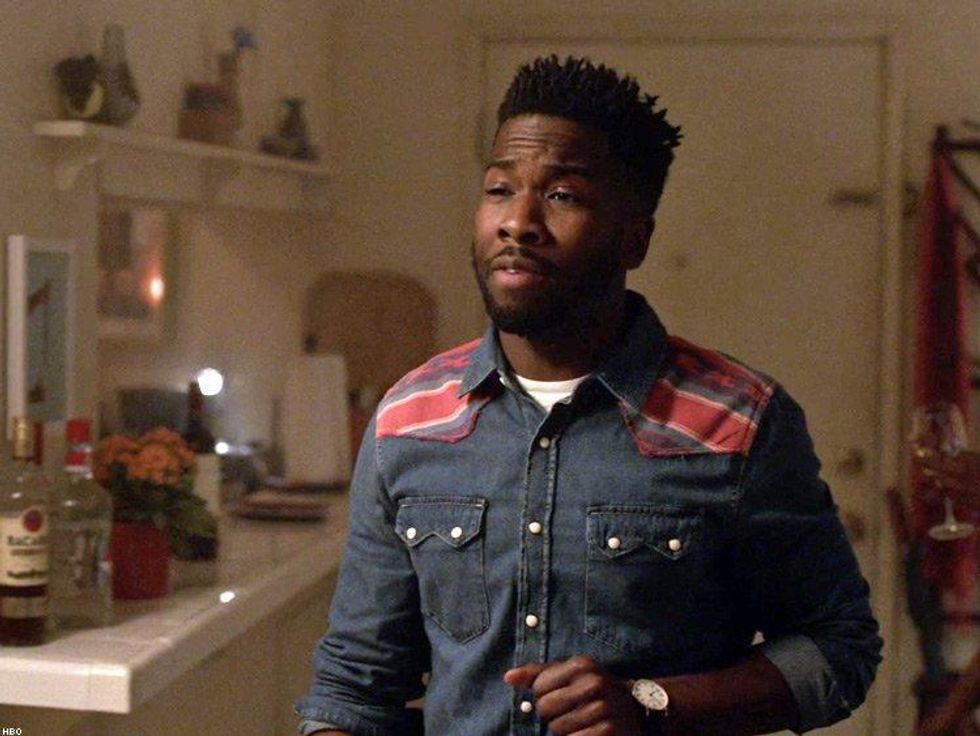
Throughout these experiences, Elie has "learned so many new terms" for the various tribes gay men belong to, including bears as well as tops and bottoms. His gay friends helped clear up some of those questions too. "Why does one prefer the top versus the bottom and and vice versa? And a lot of them were willing to tell me," he said.
In addition to a new lexicon, Elie has gained greater insight into the rejection that can be experienced by a gay man, particularly in filming his Thanksgiving dinner scene with Rae. "At least you got to be yourself," Ahmal tells his sister about family gathering, but he stressed that ex-boyfriends tried to change him too.
Elie recognizes the "thick skin" that is required to continually be around people who want to change you "versus accepting you for who you are."
Although Elie talks about the issues facing Ahmal, he also switched into the first person during the interview with The Advocate, a signifier of identification with the character. "You're supposed to love me for who I am. And if I'm not the one for you, then just move on," he said of Ahmal's experience. "Like, why are we wasting each other's time? And I feel like in a union, within a couple, or with people, you should just let the person be. And if their shit matches with yours, then let's make it all work together. We can make it work. But if you're constantly trying to change me, that means you didn't want me in the first place. You want your version of me versus taking me as who I am as an individual."
As for his relationship with Rae, Elie considers her "a big sister in real life," someone he can call whenever he has an issue in his personal or professional life. Like the Insecure co-creator and star, Elie is a content maker as well as an actor. He joined the writers' room on season 2 of Netflix's Magic for Humans. He also wrote Send Help -- a story about a first-generation Haitian navigating Hollywood after his family moves into his loft -- which is being developed at Participant Media's SoulPancake. In addition to these endeavors, Elie is involved in the world of short films and working on a plan to monetize these productions for diverse filmmakers.
Rae has been "straight up" to Elie with advice through these processes. And what did he learn? "No one's more excited about your project than you," he said. "You've got to stand your ground and hold your own. Otherwise, you're gonna lose your project and you'll lose your vision and you're gonna lose your idea. And what Issa has been able to do with Insecure is a testament to that."
And what are Elie's hopes for this season of Insecure?
"Ahmal is really come into play this season. So I'm excited to share it," Elie said, concluding, "I'm just finally happy to get a character where I could really sink my teeth in and really live between the lines."
Insecure airs Sundays at 10 p.m. Eastern on HBO. Watch the trailer below.
